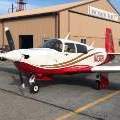LOP Impact on TBO
-
Members Online
- EricJ
- BeachLifeMoon
- hammdo
- PT20J
- Mooney20J_Driver
- Flyler
- BillyT0020
- M20E for me
- MattCW
- kortopates
- NickG
- Ibra
- crustymuffin
- sdmideas
- Rwsavory
- Todd423
- Herman_1965
- Immelman
- TCC
- Sabremech
- carusoam
- FlyingDude
- 1967 427
- FunkAir
- Greg Ellis
- RangerM20
- Yetti
- tcal780
- Schllc
- phrogpilot73
- DanM20C
- Todd1
- LANCECASPER
- finnicky7
- christaylor302
- 0TreeLemur
- Lax291
- Matt103187
- Fly_M20R
- Scuddmissile
- Bondo
- 1980Mooney
- IvanP
- Ivan
- Guy123
- Dustoff49
- Dave Barreto
- Marc B
- slowflyin
- neilpilot
- MarkD34M
- DXB


Recommended Posts
Join the conversation
You can post now and register later. If you have an account, sign in now to post with your account.